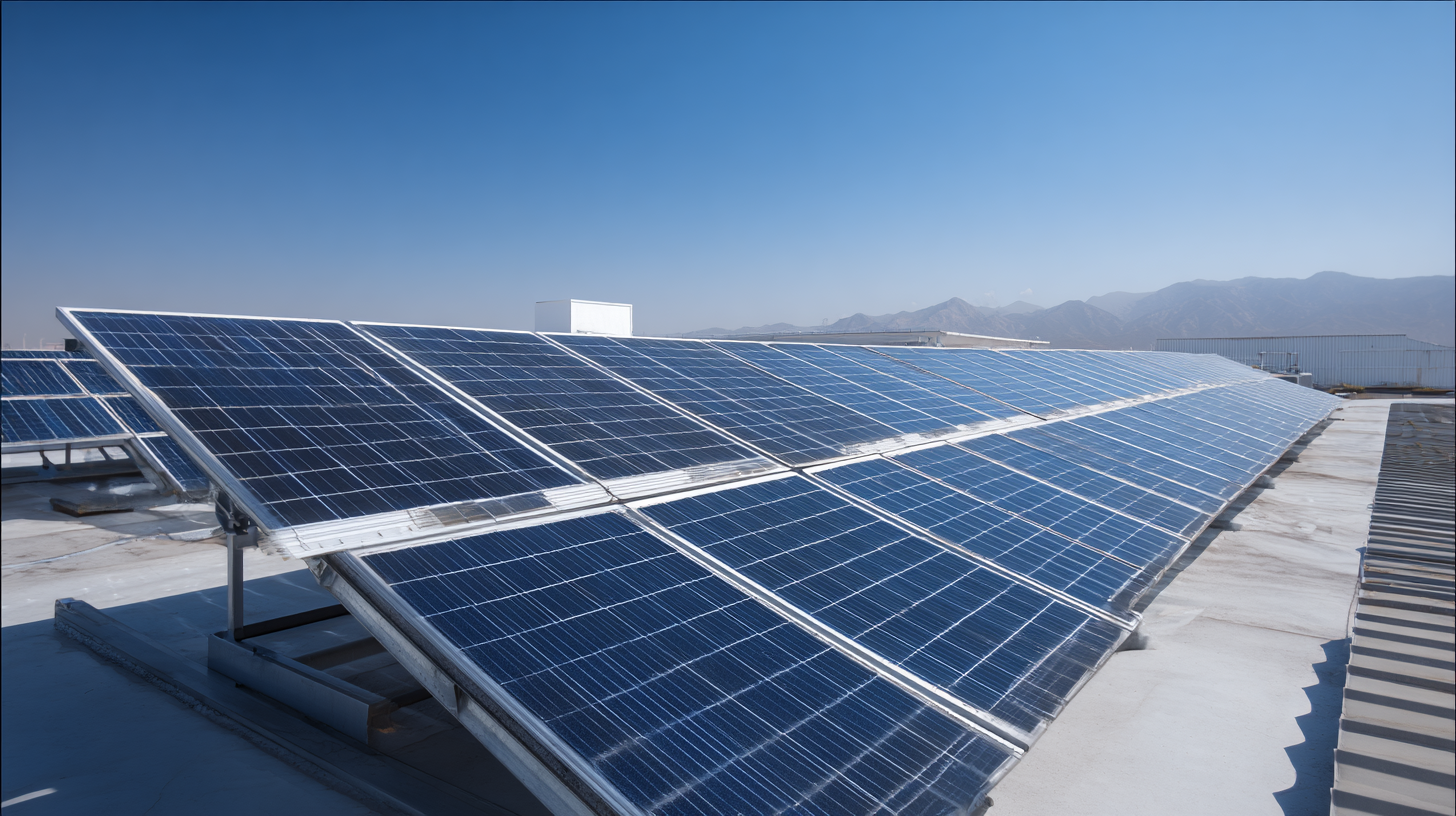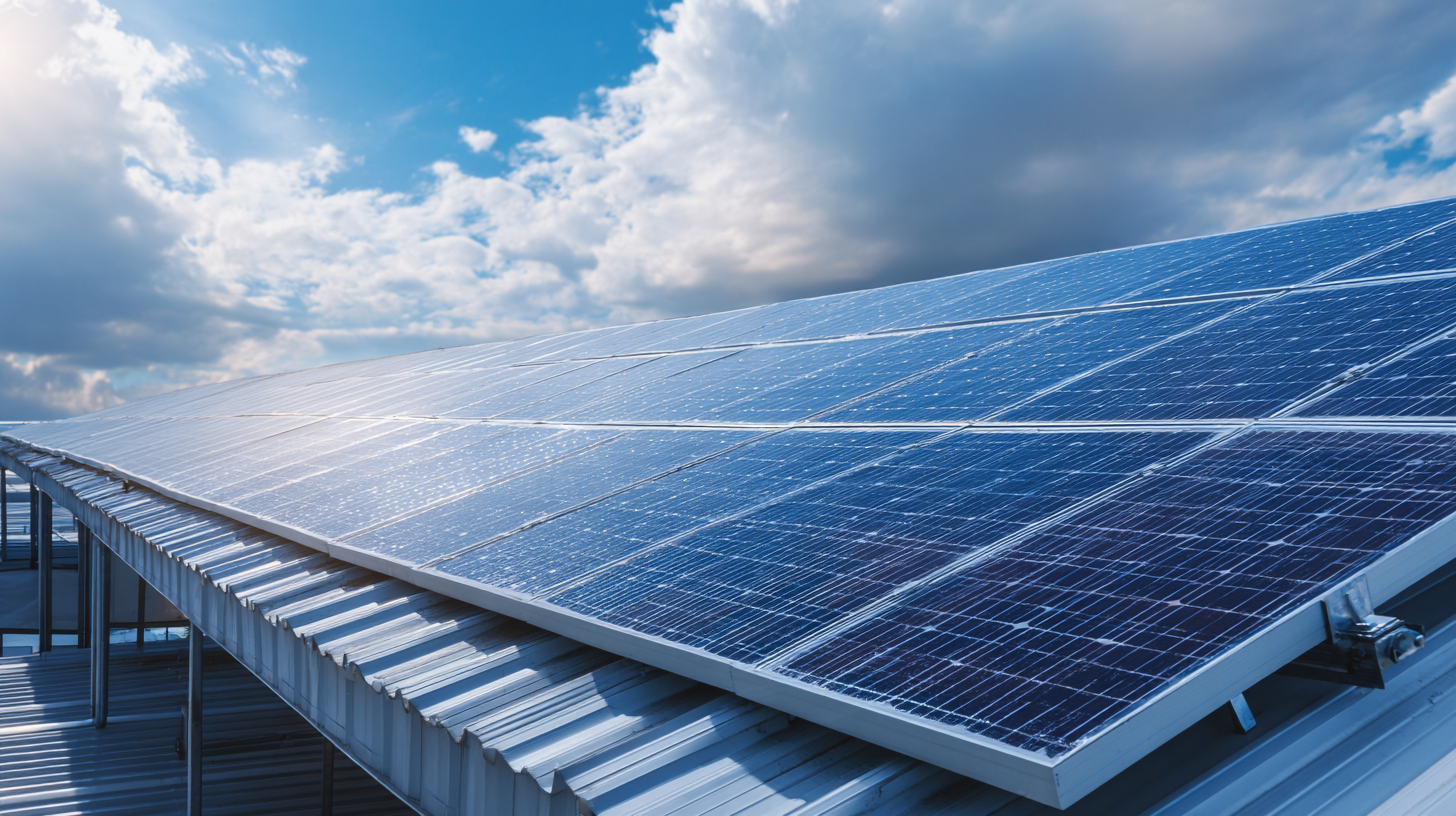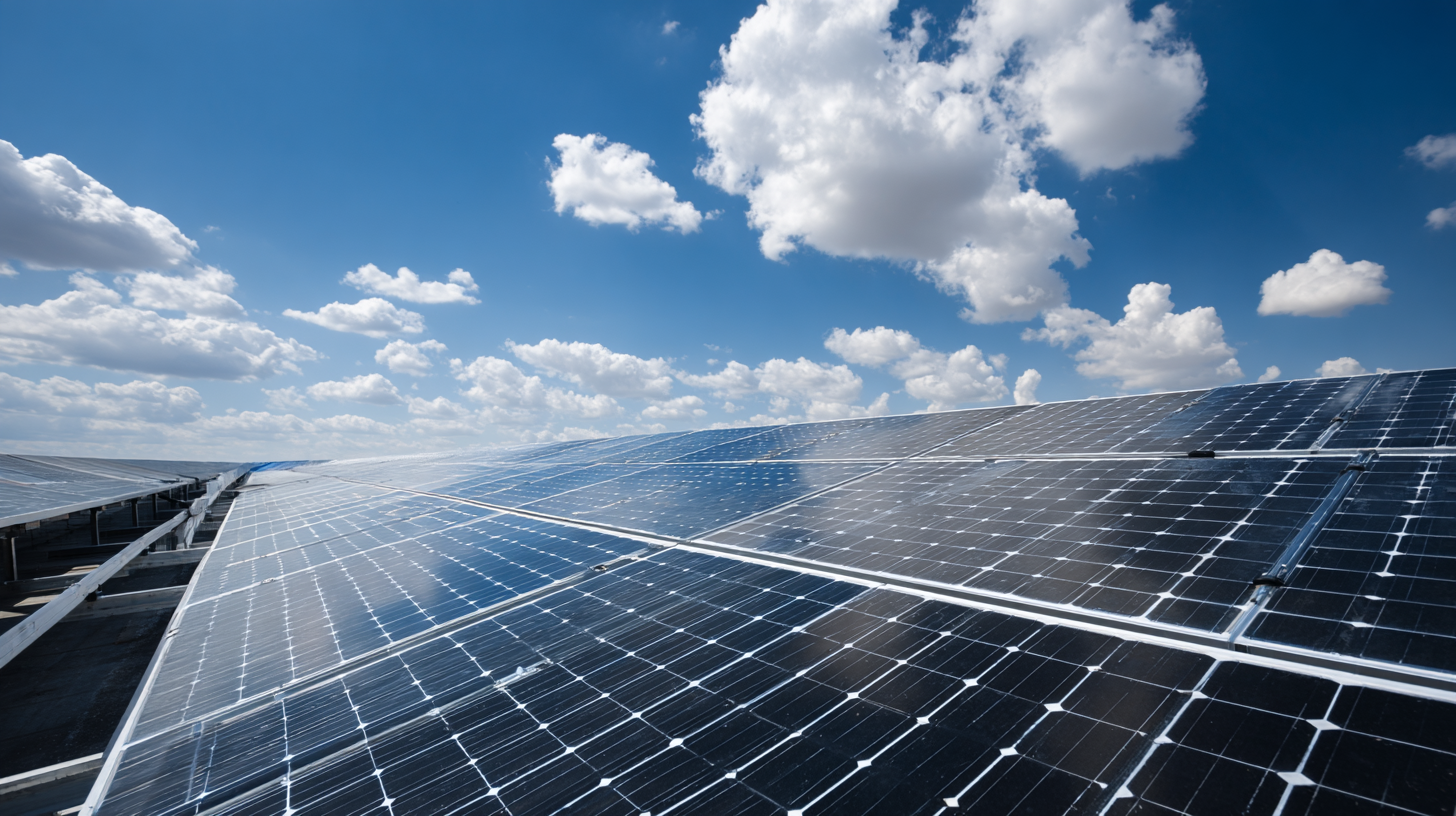Top Strategies for Choosing the Best Industrial Solar Panels for Your Business
In today's environmentally conscious world, businesses are increasingly looking to invest in renewable energy solutions to reduce their carbon footprint and energy costs. One of the most significant options available is the use of Industrial Solar Panels, which provide an eco-friendly alternative to traditional energy sources while delivering substantial cost savings over time. However, with a multitude of products on the market, each with unique features and applications, selecting the right type of industrial solar panels for your specific business needs can be daunting.

This blog aims to guide you through the top strategies for choosing the best industrial solar panels, highlighting the characteristics and suitability of different types to ensure that your investment aligns perfectly with your operational goals and sustainability aspirations. Understanding these factors will enable you to make informed decisions and harness the full potential of solar energy for your business.
Identifying Your Energy Needs: Assessing Power Consumption for Solar Panel Selection
When considering the best industrial solar panels for your business, the first critical step is to identify your energy needs. This involves a thorough assessment of your current power consumption patterns. Start by analyzing your utility bills to understand your monthly and seasonal energy usage. This data serves as a benchmark to determine how much energy your solar system needs to generate to meet or exceed your consumption, leading to potential cost savings and sustainability goals.
Once you have a clear picture of your energy usage, it's essential to evaluate the specific characteristics of potential solar panel systems that align with your requirements. Factors such as panel efficiency, capacity, and durability should all be taken into account. High-efficiency panels may be more appropriate for businesses with limited roof space, while larger enterprises might benefit from lower-cost options that provide adequate power generation. Additionally, consider how environmental factors—like the amount of sunlight your business location receives—will impact the performance of the solar panels. Understanding these elements ensures that you choose a solar solution tailored precisely to your operational energy demands.
Top Strategies for Choosing the Best Industrial Solar Panels for Your Business
| Dimension | Details |
|---|---|
| Average Daily Power Consumption (kWh) | 1200 kWh |
| Peak Power Demand (kW) | 100 kW |
| Ideal Solar Panel Rating (kW) | 300 kW |
| Estimated Number of Panels | 350 Panels |
| Space Required (sq. ft.) | 4500 sq. ft. |
| Projected Savings (Annual) | $20,000 |
| Carbon Footprint Reduction (tons/year) | 100 tons |
Understanding Different Types of Industrial Solar Panels: Pros and Cons Explained
When selecting industrial solar panels for your business, it's crucial to understand the various types available, as each comes with its unique advantages and disadvantages. Generally, the three primary types are monocrystalline, polycrystalline, and thin-film solar panels. Monocrystalline panels are known for their high efficiency and space-saving design, making them a great choice for businesses with limited roof space. However, they tend to be more expensive due to the complexity of their manufacturing process.
On the other hand, polycrystalline panels offer a more cost-effective solution, albeit with a slightly lower efficiency compared to their monocrystalline counterparts. This makes them suitable for large installations where space is not a constraint. Thin-film solar panels are the most lightweight and flexible option, ideal for unconventional surfaces, but they typically require more space to produce the same amount of energy as crystalline panels. Understanding these pros and cons is essential in selecting the right type of solar panel that aligns with your business's energy needs and budget constraints.
Evaluating Efficiency Ratings: What to Look for in Solar Panel Performance
When selecting industrial solar panels for your business, one of the crucial factors to consider is the efficiency rating. Efficiency ratings indicate how well a solar panel converts sunlight into usable electricity, which directly affects your energy savings and return on investment. Look for panels with high efficiency ratings, typically above 20%. This ensures you are maximizing energy production even in limited space.
Tip: When comparing efficiency ratings, pay attention to the testing standards used. The most reliable measurements come from independent laboratories that adhere to guidelines set by the International Electrotechnical Commission (IEC). This ensures you are getting accurate data that reflects real-world performance under various environmental conditions.
Another essential aspect is the temperature coefficient of a solar panel, which measures how much efficiency decreases as temperatures rise. Panels with a lower temperature coefficient will perform better in hotter climates, ensuring sustained energy production. This factor can be especially important for businesses located in warmer regions.
Tip: Consider investing in panels that come with robust warranties on efficiency. A strong warranty can signify a manufacturer's confidence in their product's longevity and performance, offering added peace of mind for your investment.
Understanding Installation Costs and Maintenance: Budgeting for Your Solar Investment
When considering the installation of industrial solar panels, understanding the associated costs is crucial for effective budgeting.
According to the U.S. Department of Energy, the average installed cost for commercial solar systems in 2022 was approximately $2.70 per watt.
This can vary significantly based on system size and location, so it’s essential for businesses to obtain multiple quotes and consider local incentives,
such as tax credits and grants, which can reduce the overall investment.
Budgeting for solar not only involves the initial installation costs but also ongoing maintenance.
Industry reports suggest that maintenance costs typically range from 1-2% of the initial investment per year.
Regular inspections and timely repairs can enhance the lifespan and efficiency of the solar panels, which is critical for maximizing return on investment.
Tips:
- Conduct a thorough site assessment to determine the optimal system size and energy needs of your business.
- Evaluate financing options like power purchase agreements (PPAs) or solar leases, which can alleviate upfront installation costs.
- Stay informed about government incentives that could substantially lower your total expenditure.

Navigating Incentives and Financial Options: Maximizing ROI for Your Solar Project
When considering industrial solar panels for your business, navigating incentives and financial options is crucial to maximizing your return on investment (ROI). Many governments offer tax credits, rebates, and grants to businesses that choose sustainable energy solutions. Familiarize yourself with local, state, and federal programs that can significantly reduce upfront costs. Engaging with a solar consultant is also beneficial, as they can help identify the best financial incentives available to your specific situation.

Another important tip is to explore financing options like power purchase agreements (PPAs) or solar loans. These arrangements allow businesses to install solar panels with little to no initial investment, paying for the system over time through savings on energy costs. Assess your cash flow and budget to determine which financing method aligns best with your financial strategy, ensuring the decision enhances your business’s overall profitability.
Finally, don’t overlook the long-term savings associated with solar energy. By conducting a detailed energy audit and evaluating your current electricity consumption, you can better project future savings. This knowledge not only helps in making informed financial decisions but also in negotiating smarter contracts with solar providers, thereby maximizing your overall ROI.
